第29章 BOOK VI(9)
I happened to carry a great many books with me, instead of merchandise, when I sailed my fourth voyage; for I was so far from thinking of soon coming back, that I rather thought never to have returned at all, and I gave them all my books, among which were many of Plato's and some of Aristotle's works. I had also Theophrastus "On Plants," which, to my great regret, was imperfect; for having laid it carelessly by, while we were at sea, a monkey had seized upon it, and in many places torn out the leaves. They have no books of grammar but Lascares, for I did not carry Theodorus with me; nor have they any dictionaries but Hesichius and Dioscorides. They esteem Plutarch highly, and were much taken with Lucian's wit and with his pleasant way of writing.
As for the poets, they have Aristophanes, Homer, Euripides, and Sophocles of Aldus's edition; and for historians Thucydides, Herodotus, and Herodian. One of my companions, Thricius Apinatus, happened to carry with him some of Hippocrates's works, and Galen's "Microtechne," which they hold in great estimation; for though there is no nation in the world that needs physic so little as they do, yet there is not any that honors it so much: they reckon the knowledge of it one of the pleasantest and most profitable parts of philosophy, by which, as they search into the secrets of nature, so they not only find this study highly agreeable, but think that such inquiries are very acceptable to the Author of nature; and imagine that as He, like the inventors of curious engines among mankind, has exposed this great machine of the universe to the view of the only creatures capable of contemplating it, so an exact and curious observer, who admires His workmanship, is much more acceptable to Him than one of the herd, who, like a beast incapable of reason, looks on this glorious scene with the eyes of a dull and unconcerned spectator.
The minds of the Utopians, when fenced with a love for learning, are very ingenious in discovering all such arts as are necessary to carry it to perfection. Two things they owe to us, the manufacture of paper and the art of printing: yet they are not so entirely indebted to us for these discoveries but that a great part of the invention was their own. We showed them some books printed by Aldus, we explained to them the way of making paper, and the mystery of printing; but as we had never practised these arts, we described them in a crude and superficial manner. They seized the hints we gave them, and though at first they could not arrive at perfection, yet by making many essays they at last found out and corrected all their errors, and conquered every difficulty. Before this they only wrote on parchment, on reeds, or on the bark of trees; but now they have established the manufacture of paper, and set up printing-presses, so that if they had but a good number of Greek authors they would be quickly supplied with many copies of them: at present, though they have no more than those I have mentioned, yet by several impressions they have multiplied them into many thousands .
If any man was to go among them that had some extraordinary talent, or that by much travelling had observed the customs of many nations (which made us to be so well received), he would receive a hearty welcome; for they are very desirous to know the state of the whole world. Very few go among them on the account of traffic, for what can a man carry to them but iron or gold or silver, which merchants desire rather to export than import to a strange country: and as for their exportation, they think it better to manage that themselves than to leave it to foreigners, for by this means, as they understand the state of the neighboring countries better, so they keep up the art of navigation, which cannot be maintained but by much practice.